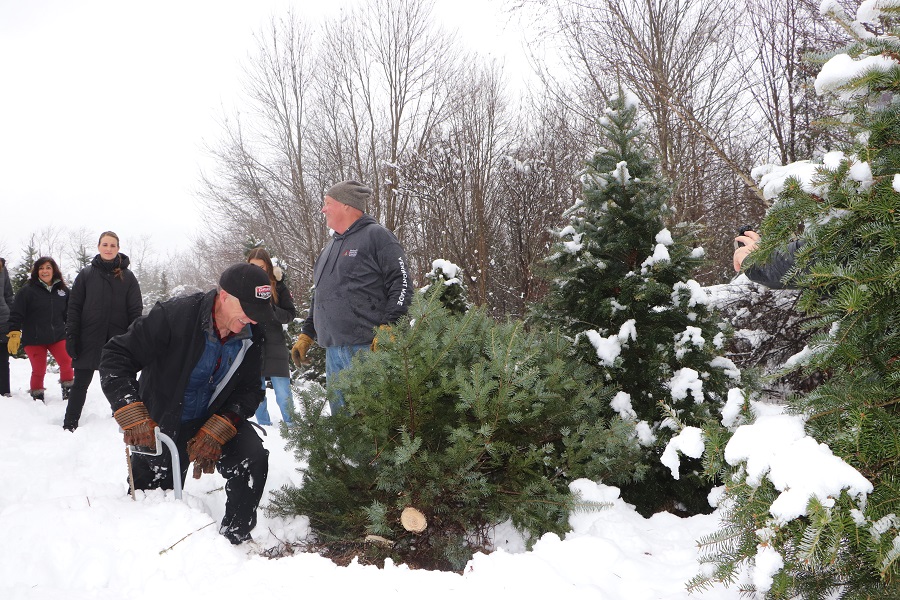
*Image: Vermont Governor Phil Scott cuts a Christmas tree for the state capital in Montpelier.
By Nigel Manley, Program Manager of the New Hampshire-Vermont Christmas Tree Association
It has been said that money does not grow on trees, but that phrase may not capture the whole picture, especially if you are one of the 400 or so Vermont and New Hampshire farmers that bring to market Christmas trees, wreaths, garland and other decorator items each year. Many trees are sold to the wholesale market for ultimate resale throughout the region. Others are sold directly to the consumer, who enjoy the process of visiting the farm and taking part in the “cut your own” experience.
Within the New Hampshire-Vermont Christmas Tree Association, the “cut your own” market is the most rapidly growing segment of an industry which annually produces more than 30 million trees nationwide.
While Vermont production is not large in comparison to the major producing states of North Carolina, Pennsylvania, Michigan, Oregon and Washington, the soil and climate here are ideal for producing a quality tree. Balsam fir, Canaan Fir, Fraser fir, Korean Balsam Hybrid are the two states primary species, but other exotic species are grown here as well. The large population within driving distance of a Vermont and New Hampshire farms often allows for direct sale to the consumer through pick-your-own and cut-your-own operations. Many farms truly turn the selection of a tree into an experience with gift shops, hot chocolate or cider, wagon rides, slides, fire pits or even visits from Santa. Some allow for pre-season visits to the farms, where customers can select and tag a tree for ultimate cutting later in the year.
All farmers are in a partnership of sorts, with Christmas tree farmers being no different, with Mother Nature. 2023 was a difficult year, with extreme dryness in early summer. Newly planted trees struggled, less so for more mature trees. 2024 has been a different story, with plenty of rainfall through much of the region. As a result, there should be a good supply of trees if you want to visit a farm and cut your own, and the quality should be excellent.
There are reports of a shortage of trees in 2024 throughout the country. Production of Christmas trees can be cyclical, much like corn, soybeans, and other agricultural crops, as farmers adjust their plantings to marketing and pricing outlooks. Unlike annual crops, though, the cycle is 8-10 years rather than an annual one as is the case with many other crops. The availability of trees in 2024 has much to do with farmers’ outlook several years ago. There is no denying that the supply of wholesale trees will be tight this year. Most Vermont and New Hampshire farmers who sell to the wholesale market are sold out for the year, and at favorable prices.
While supply and demand cycles will always be part of agricultural decision making, the future of the Christmas tree industry is a good one. Farmers who are looking at diversification, with good land and with the capability of absorbing annual production costs and waiting several years before trees reach merchantable size may want to give this some thought. “We have seen an increase in new growers over the past 3 years” said Nigel Manley, Program Manager NH-VT CTA.
The New Hampshire-Vermont Christmas Tree Association was founded in 1956 and represents both large and small, wholesale and cut your own growers throughout the two-state region. For further information they may be reached by visiting their website www.nh-vtchristmastree.org.

